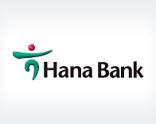On January 21, 2015, the U.S. Supreme Court in Hana Financial, Inc. v. Hana Bank, held that whether two trademarks are "legal equivalents" and thus may be "tacked" together for purposes of determining priority is a question of fact for a jury to decide. In its first substantive trademark opinion in a decade, the Court addressed an issue of importance to businesses when considering slight rebranding or modifications to their trademarks or service marks.
"Tacking," in trademark law, refers to a trademark holder's ability to maintain its date of first use in commerce for a specific mark while still making certain modifications to that mark over time. The date of first use is critical in trademark law because, in cases where businesses use conflicting marks, the user with the earlier date of first use has a significant advantage, and usually prevails.
The importance of this progression over time is illustrated by Hana Bank. Hana Bank was originally established in 1971 as Korea Investment Finance Corporation, a Korean entity. Twenty years later, Korea Investment Finance Corporation changed its name to "Hana Bank," a name it used throughout Korea. The Korean word pronounced as "hana" means "number one," "first," "top," or "unity." In 1994, Hana Bank began providing financial services to Korean expatriates living in the United States, advertising these services under the name "Hana Overseas Korean Club" in both English and Korean, including the name "Hana Bank" in Korean along with its dancing man logo (as seen below):


Hana Overseas Korean Club changed its name to "Hana World Center" in 2000, and began operating a bank in the United States under the name "Hana Bank."
The competing user, Hana Financial, Inc., first came into existence in 1994, one month after Hana Bank's entry into the United States as Hana Overseas Korean Club. In 1995, Hana Financial began using that name and an associated trademark in commerce, later obtaining a federal trademark registration for the name "Hana Financial" together with a pyramid logo for use in connection with financial services:

Hana Financial sued Hana Bank for trademark infringement, and Hana Bank responded by invoking the tacking doctrine and claiming that it had priority. A jury found that Hana Bank's various iterations of its mark—Hana Overseas Korean Club, to Hana World Center, to Hana Bank—were "legal equivalents" that created the same, continuing commercial impression such that an ordinary purchaser or consumer would consider both as the same mark. As Hana Bank thus had priority in time over Hana Financial, it won. After the Ninth Circuit Court of Appeals affirmed, Hana Financial appealed to the U.S. Supreme Court on the question of whether tacking should be decided by juries or judges. The Court had no trouble in finding that this question was a fact-intensive inquiry that was well-suited for a jury to decide.
For businesses wishing to make changes to their marks, the Hana decision provides assurance that any question of tacking likely will be determined by the jury, if a jury is requested. Of course, as with any fact-finding determination, there are still instances that a judge may rule on the issue, such as during summary judgment. Further, when considering modifications to a mark, Hana provides an example of what is allowable in order to maintain the priority of the original mark. More particularly, Hana Bank kept the main portion of its mark—"Hana"—throughout all changes to the name. This consistency thus entitled it to the original mark's date of first use in commerce.
If you have any questions or want to discuss how this decision could impact your business, contact your Baker Donelson attorney or one of the attorneys in the Firm's Intellectual Property Group.